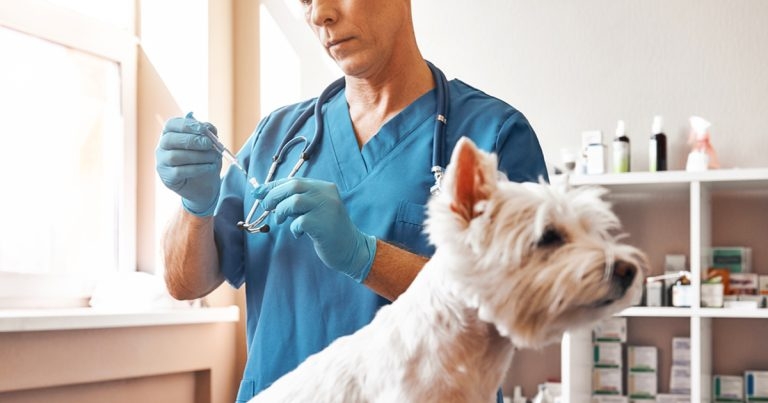26 May 2020
Small Animal Veterinary Surveillance Network project will use a mixed methods approach to quantify and characterise vaccine uptake and hesitancy in UK companion animals.

Image © dima_sidelnikov / Adobe Stock
The BSAVA PetSavers fund has released £50,000 for a project that will use Small Animal Veterinary Surveillance Network (SAVSNET) data to help develop new strategies to improve uptake of vaccines in companion animals.
SAVSNET maintains an ongoing collaboration with the BSAVA to harness electronic health and environmental data for “rapid and actionable” research and surveillance.
Rates of vaccine uptake have been decreasing over the past three years and the PDSA’s Animal Wellbeing Report in 2019 showed 72% of dogs had received a primary vaccination course when young.
The project is a mixed methods approach to quantifying and characterising vaccine uptake and vaccine hesitancy in UK companion animals, and will combine quantitative analysis of existing data from electronic health records with qualitative approaches.
It will include interviews and focus group discussions with vets and owners to gain an in-depth understanding of patterns of uptake of vaccination in UK.
Experiences, perceptions and behaviours around uptake of vaccination, and the rise of vaccine hesitancy in UK pet owners, will also be investigated.
Project lead at the University of Liverpool Gina Pinchbeck said: “Vaccination is a vital component of preventive health care and it is well acknowledged that suboptimal vaccination uptake may be associated with re-emergence of vaccine-preventable diseases in populations.
“It is essential we understand the reasons for vaccine hesitancy in the pet population so we can use the best methods to promote vaccine acceptance and uptake, and this will be the primary focus of the study.”
BSAVA president Ian Ramsey added: “This project will be of great value to the veterinary profession, and continues the cooperation between the BSAVA and the University of Liverpool to build on the successes of the original SAVSNET partnership.”
More information on the project is available – to apply for the PhD, email Dr Pinchbeck.